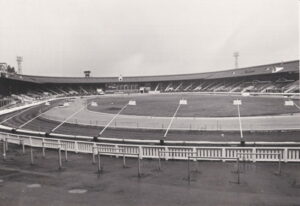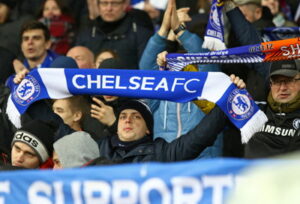Nowadays, BetVictor is a well-established and respected betting company that operates in the United Kingdom and in other areas. For a long time, it was a family run business, having been started by William Chandler in 1946 before Victor Chandler Sr took over the business and tied on in his father’s footsteps.
After Victor Chandler Sr came Victor Chandler Jr, who took the business into the modern era before selling the majority of the shares to Michael Tabor. Though Victor Chandler Jr maintained an interest in the business, this signalled the end of the Chandler family’s outright ownership of it.
William Chandler was the owner of Walthamstow Stadium, a greyhound track in north-east London. He bought it by selling his shares in Hackney Wick the greyhound stadium that he had been a shareholder and director of. This gave him the funds to buy Crooked Billet, the stadium that he would redevelop.
He had eight children in total, of which five were boys. After his death in 1946, two of them, Jack and Victor, took over the bookmaking business whilst Charles and Percy managed the greyhound track. The business remained in the family, with the sons and their wives taking on different roles.
The Life Of William Chandler

As you might imagine, information about William George Chandler isn’t all that easy to come by. When you consider that he was born on the 30th of November in 1880, that maybe isn’t all that surprising. Born in the Hoxton area of London, Chandler became the leading bookmaker for White City Greyhounds, which was the greyhound racing operation based at White City Stadium in the capital. It was considered by many to be the primary track of the sport whilst it was open, having first seen racing take place in 1927.
In the 1920s, it is believed by many that Chandler started an illegal betting business, which gave him enough money to be able to become a shareholder and director of Hackney Wick Greyhound Stadium. He fell in love with greyhound racing, making a decision in 1930 to sell his Hackney Wick shares in order to buy what was then known as Crooked Billet. This unlicensed greyhound track was based in Walthamstow and was the venue of flapper racing, following the trend that had been started in 1926 at Manchester’s Belle Vue Stadium before becoming popular in the rest of the country.
It cost Chandler £24,000, but he used the land to build what would become Walthamstow Stadium. Boasting a catchment area of Essex and east London, the track became immensely popular thanks to its more gaudy and brash approach to life than you would be able to experience at other tracks. Away from the track, Chandler was kept busy on account of the fact that he had eight children, five of which were sons. This would prove to be fortuitous, on account of the fact that Chandler died in 1946 and someone needed to take over the running of the business.
Victor Chandler Senior

In the wake of William Chandler’s death, the job of running his businesses fell to his children. Two of them, Charles and Percy, took over the management of Walthamstow Stadium, with Charles becoming the General Manager.
Meanwhile, Victor and Jack took on the role of running their father’s bookmaking business, with Ronnie training the greyhounds. Charles, Victor and Percy all married sisters from the same family, with Charles tying the knot with Frances Morrill, Victor was wed to Betty and Ann became the wife of Percy. The latter was Walthamstow’s catering manager, dying in 1984.
In truth, little is known about Victor Chandler Sr, largely because he kept the business ticking along with his brothers without doing anything all that exceptional.
Charles died in 1976, with his son, Charles Victor Jr, becoming a Director of Walthamstow Stadium and Chairman of the Racecourse Promoters, as well as a Director of the Greyhound Racing Association. The other children were all Directors of Walthamstow too. In 1974, Victor Chandler Sr died, meaning that his son, Victor Chandler Jr, would have to take over the bookmaking business that had been started by his grand-father and continued by his dad.
Victor Chandler Junior
 The biggest thing that Victor Chandler Sr had done was to ensure that the bookmaking business kept up with the modern world. When legislation was passed by Harold Macmillan and his cabinet in 1961 to allow bookmakers to open shops on the high street rather than be restricted to racecourses, Victor Chandler moved quickly to ensure that the business was well-placed to take advantage.
The biggest thing that Victor Chandler Sr had done was to ensure that the bookmaking business kept up with the modern world. When legislation was passed by Harold Macmillan and his cabinet in 1961 to allow bookmakers to open shops on the high street rather than be restricted to racecourses, Victor Chandler moved quickly to ensure that the business was well-placed to take advantage.
He opened a wealth of shops that bore his name, positioning the company well to make money from the new relaxation of betting laws and making legal what his father had once done illegally.
Victor Chandler Jr was in his early 20s when his father died, meaning that he was still relatively young and inexperienced in the world of business when he was asked to take on the role of chief of a betting enterprise.
He had, of course, been raised in the world of betting, being taken to the likes of Plumpton, Brighton and Fontwell race tracks and placing his first bet as an eight-year-old. When not at racetracks, the family would often play the likes of stud poker or rummy, with the winner earning a small amount of money.
The Early Years
 He went to Highgate School, being kicked out after he was caught skipping class one too many times. Victor Chandler Sr was able to convince the Headmaster of Millfield School to take his son in, with the rumour being that he did so after Chandler agreed to forgive some of his gambling debts.
He went to Highgate School, being kicked out after he was caught skipping class one too many times. Victor Chandler Sr was able to convince the Headmaster of Millfield School to take his son in, with the rumour being that he did so after Chandler agreed to forgive some of his gambling debts.
These sorts of deals were being struck by Chandler all the time, keeping his son out of trouble as much as possible. Though he wasn’t academically brilliant, he did complete his education at the school before moving to Switzerland in 1969.
He attended the Swiss Hotel Management School, hoping to become a caterer, enjoying the hands-on nature of the classes. Even so, what had happened at school continued in Switzerland and his inability to attend classes saw him being kicked out.
He moved to Spain and trained as a real estate agent, selling a few houses before Victor Chandler Sr was diagnosed with aggressive cancer and his son headed home, making it back just before he died. At that point, he chose to head home in order to look after his mum and his two sisters, also agreeing to take over the family business.
Victor Chandler Jr Takes Charge
 In the wake of his father’s passing, Victor Chandler Jr took over the family business and soon realised that it was in financial trouble. He needed to make cutbacks, which he did over a period of two years.
In the wake of his father’s passing, Victor Chandler Jr took over the family business and soon realised that it was in financial trouble. He needed to make cutbacks, which he did over a period of two years.
He was ready to walk away and it appeared as though he was going to do just that when he received an offer from Hugh Hefner’s Playboy Enterprises. He chose to back out of the deal, though, when he realised that it wasn’t a big enough offer to justify selling the business that his family had spent decades building.
Slowly but surely, the business began to get back on an even footing. By 1997, Chandler had made more than £100,000 in profit, paying off the debts that his father had gotten into.
One of the ways in which he was able to ensure that the company could grow was by offering bettors the chance to place any sized bet that they wanted, meaning that some would lose hundreds of thousands at a time. On more than one occasion, he needed to hire a private investigator to find a punter who had lost huge sums of money and fled to avoid paying.
The Move That Changed British Gambling
 The British government wanted to make as much money from the gambling industry as it was able to do. As a result, a decision was taken to move the betting tax up to 9%, which was likely to cause a huge hit in profits for companies like Victor Chandler.
The British government wanted to make as much money from the gambling industry as it was able to do. As a result, a decision was taken to move the betting tax up to 9%, which was likely to cause a huge hit in profits for companies like Victor Chandler.
Having investigated a variety of different options, such as moving to Antigua, Jersey or Guernsey, he discovered from Cyril Stein, the owner of Ladbrokes, that there was a licence available in Gibraltar. Ladbrokes had taken licence 002, but 001 was still up for grabs and he bought it in 1996.
It was after the move to Gibraltar that the company that became BetVictor really took off. Other bookmakers noted the success that the company was enjoying and the limited amount of tax it was having to pay and decided to follow suit. Gordon Brown became Chancellor of the Exchequer in 2001, choosing to abolish the gambling tax in the theory that the gambling businesses would move back, but they didn’t.
It certainly helped that the internet began to offer a chance for betting companies to make even more money via online gambling.
The Famous Bet With Fred Done
 Generally bookies make money by not taking risks, they don’t like exposure to any given outcome and ideally want a balanced book to ensure they always make a profit whatever the result.
Generally bookies make money by not taking risks, they don’t like exposure to any given outcome and ideally want a balanced book to ensure they always make a profit whatever the result.
Therefore, the famous £1 million bet between Victor Chandler and Fred Done (co-founder of Betfred) in 2004 was unusual to say the least.
Fred Done being a big Man United fan wagered a million with Victor that they would finish higher than Chelsea in the Premier League that season.
Chelsea did indeed finish higher than Man United, winning the league under Jose Mourinho, by a whopping 18 points. Done paid up netting Chandler a cool one million.
The bet was unregulated and came before the 2005 Gambling Act and so it was done on a hand shake but Done still payed out in full, garnering a lot of media attention for both parties, which to be fair was probably worth it for Fred Done and especially for Victor Chandler.
The End Of An Era
 One of the things that Chandler realised would help his company grow was the ability to sponsor events and get the company’s name in the public conscience. It was with this in mind that BetVictor became the sponsors of the Clarence House Chase, a horse race that was run over a little more than two miles, open to five-year-olds and over and took place at Ascot.
One of the things that Chandler realised would help his company grow was the ability to sponsor events and get the company’s name in the public conscience. It was with this in mind that BetVictor became the sponsors of the Clarence House Chase, a horse race that was run over a little more than two miles, open to five-year-olds and over and took place at Ascot.
Every year, the company’s website would see an increase in traffic after the race’s conclusion, proving to Chandler that he’d made the right decision getting involved in sponsorship.
The likes of the Welsh Open Snooker and World Matchplay Darts events were soon added to the BetVictor canon of sponsorship, allowing the business to grow more and more. It got to the point in 2014 that Victor Chandler Jr decided that the time was right for him to step down from his role as the company’s Chief Executive Officer.
He sold the majority of shares to Michael Tabor, a successful racehorse owner. Tabor requested that the exact amount he paid for the company was never made public, but what we do know is that at the time of the sale, BetVictor was in more than 160 countries and brought in in excess of £1 billion annually.